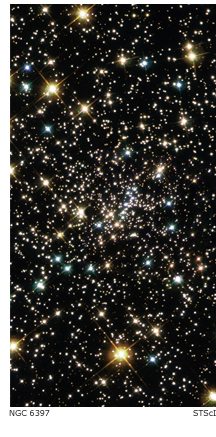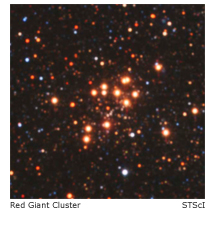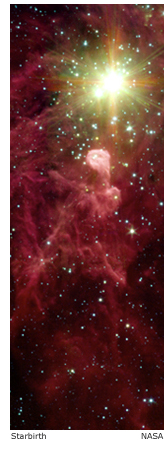
|
Syllabus ASTRONOMY 352K STELLAR ASTRONOMY (FOR SCIENCE MAJORS) FALL 2006 - UNIQUE NO. 50515 MEETINGS: Tues. & Thurs., 11:00 AM - 12:15 PM, RLM 15.216B INSTRUCTOR: Professor Harriet L. Dinerstein, RLM 16.324 Office Phone: 471-3449 e-mail: harriet@astro.as.utexas.edu OFFICE HOURS: Tues. & Thurs., 1:30-2:30 PM, or by appointment TA: Jessica Wood, RLM 17.307, 471-8414 Office Hours: Wed., 2-3 PM e-mail: jlwood@astro.as.utexas.edu Subject Matter: Stars are obviously fundamental to the subject of astronomy; its very name means "study of the stars"! Stars are the building blocks of galaxies, the central bodies of planetary systems, and the nuclear ovens in which all of the elements heavier than helium were created. Astronomy 352K is a technical, junior/senior-level introduction to stellar astronomy and astrophysics, designed for astronomy or physics majors, or those in closely related majors. We will approach the subject the way professional astronomers do, by examining the "observable" properties of stars. These are the quantities that we can measure even from great distances, such as the color and brightness of the light they emit. By applying physical principles, we will show how one can infer the intrinsic (true) properties of stars - such as surface temperature, radius, and luminosity (total radiative energy output) - from these observables. This requires a detailed understanding of how to read the information encoded in light, and how it is determined by conditions in the material emitting the light. We will discuss the various instruments and measurement techniques used by astronomers, and what can be learned from each method. Towards the end of the semester, we will give a brief overview of the life stories of stars from birth to death, and cover special topics selected partly according to the interests Prerequisite & Approach: Physics: The prerequisites are Physics 316 or equivalent (lower-division E&M), and its prerequisite, Physics 301 (Mechanics), as well as the accompanying math courses. However, astronomy draws on such a wide variety of areas of physics - for example, atomic structure, statistical mechanics, & the theory of radiation - that we cannot expect you to have previously seen all of them. So we will introduce the needed physical ideas and laws as we go along. Furthermore, our main interest will lie in applying physical principles to astronomical situations, rather than in carrying out derivations from scratch, and the mathematical manipulations you will execute in the homework problems will mostly be at the level of algebra, trigonometry, and simple calculus.  Astronomy: Many students will have previously taken an introductory astronomy course, such as
Astronomy 307 or 301. This is not a requirement, although such students may have the advantage
of greater familiarity with some astronomical terms. For those have not taken such a class, I have
placed two copies of Jeff Bennett's "Cosmic Perspective," a popular textbook for introductory
courses, on reserve in the PMA Library to use for reference. If you have a different introductory
textbook, it can probably serve the purpose equally well.
Astronomy: Many students will have previously taken an introductory astronomy course, such as
Astronomy 307 or 301. This is not a requirement, although such students may have the advantage
of greater familiarity with some astronomical terms. For those have not taken such a class, I have
placed two copies of Jeff Bennett's "Cosmic Perspective," a popular textbook for introductory
courses, on reserve in the PMA Library to use for reference. If you have a different introductory
textbook, it can probably serve the purpose equally well.
Textbook: The primary text for Ast 352K this semester will be a set of Instructor's Notes which will be posted on the course website (in sections) as pdf documents. Textbooks for courses at the level of Ast 352K are scarce. Probably the most widely used such book is "An Introduction to Modern Stellar Astrophysics," by Ostlie and Carroll (it was used by Prof. Jaffe in fall 2005). I decided not to declare it as a required text, partly because I will not necessarily follow the book exactly, and partly because the second edition - just published - is very expensive, and does not use my favorite system of physical units. However, I expect to use some material from Ostlie, especially figures, in my lectures and notes, so I have placed the PMA Library's copy on reserve (on 2-hour checkout). Several other books that may be useful will also be placed on reserve in PMA. Required Work & Grading Breakdown: Hour and Final Exams: There will be a comprehensive final exam during the official exam time: Thursday, December 14, 2 - 5 PM. The final exam is worth 20% of the grade, the same as each of three in-class hour exams given earlier during the semester. If you take all three of these hour exams and are satisfied with your grades, you don't have to take the final. If you take it anyway, and do better than on one of the previous exams, this higher score (on the final) will replace lower score. I do not give make-ups for missed exams, even if they were missed for a valid reason; in my classes, the final exam serves as the universal make-up. Therefore, you need to plan to be available at the time of the final exam; I will not be sympathetic to students who want to take the final but have made arrangements to be out of town on the exam date! Homeworks: Other required work for this course will include problem sets (homeworks), assigned somewhat less often than weekly. Depending on how many are given, the lowest one or two grades will be dropped. Please note: homeworks are not group projects. You may talk with your fellow students about general ideas, but the work you turn in must be your own. In cases of identical (copied) answers to the problems, neither paper will receive credit. Participation: A significant portion of the grade will be determined by presentations in class, mainly from an in-depth presentation on a topic of special interest to you. (Of course, it must be relevant to stellar astronomy, and approved by the instructor!) The presentation grade will be based on written materials prepared for distribution to the class, as well as on the quality of the slides and effectiveness of your delivery. Students working on presentation topics related to each other will be encouraged to consult together while preparing their talks. Another aspect of the "presentations" portion of the grade will be an occasional assignment to prepare a 2-3 minute summary of a particular class and to present it at the beginning of the next class meeting. Finally, regular attendance and participation is expected, and constitutes a small part of the grade. Grading Breakdown: The basic grading scheme is as follows:
Important Dates for Fall 2006:
 Classroom Policies and Expectations:
Classroom Policies and Expectations:Thanks to the recent acquisition of new furniture, our classroom, RLM 15.216B, is now provided with reasonably comfortable chairs, and long tables that are convenient for taking notes in class. However, the aisles are narrow, and latecomers to any lecture or seminar tend to cause a commotion as they climb over other people in order to get to an empty chair. To avoid this distraction, please come to class on time. When you enter the classroom, be prepared to write your name on a sign-in sheet, collect or leave off homework or other papers, and take a seat promptly. The classroom is fairly small. The good news is that this will - I hope! - promote an informal atmosphere in which students feel free to ask questions and express opinions. The bad news is that you cannot hide distracting behavior. Please be courteous to your fellow students and the instructor. This means that you will not use cell phones in class, and must turn off your cell phone ringers. (The first time your phone rings, I will just make faces at you; repeat offenses will have more serious consequences.) Also, the classroom is no place for private conversations. If you have a comment or question about what is being said in class, everyone can and should hear it. If you want to talk to a fellow student about something unrelated, save it for later. Finally, I find it disconcerting to face a wall of laptop covers. Please keep your computer stowed away during this class. I realize that some instructors permit and even welcome student use of laptops during class, but it is far too tempting for you to multi-task and check email, browse other websites, iChat, play games, etc. The University encourages use of email as a primary form of communication for university business. Among other things, they have made it easy for a student to send email simultaneously to everyone registered in the class. I want to make it clear that I do not approve of your use of this group email function, unless I have specifically approved a particular message. (This is my way of fighting spam and other unwanted email.) I will gladly answer questions, set up appointments, etc., if you email me directly; the same goes for the Teaching Assistant. But I do not want to see emails being sent to the whole class discussing homework answers, conducting opinion surveys for an unrelated class, or looking for someone to sublet an apartment to (all of which happened in my classes last year!). Scholastic Integrity (and Lack of): It's never fun to bring up this topic, but I have been told that it should be part of any UT course syllabus. I will not tolerate scholastic dishonesty in Ast 352K. This can encompass copying or plagiarism on homework or other work, collusion (working together on an assignment for which it was forbidden), bringing unauthorized materials into exams (e.g. crib sheets), etc. Personally, I find the University's new Honor Code to be rather vague (did you even know that there is one?), but you will find more useful and detailed information at the website of the Dean of Students: http://deanofstudents.utexas.edu/sjs/scholdis.php and http://deanofstudents.utexas.edu/sjs/acint_student.php Be warned: I have had cases of scholastic dishonesty in my classes, and I have responded with appropriate academic penalties, including filing a case with the Dean of Students Office. Students With Disabilities: Upon request, the University of Texas at Austin provides appropriate academic adjustments for qualified students with disabilities. Contact the Office of the Dean of Students for information on how to register for a qualified disability (note: you can have a temporary disability, as well as a permanent one). Their phone number is 471-6259, or see the following website for further contact information: http://deanofstudents.utexas.edu/ssd/. (I will make such accommodations for an officially approved and registered disability, but not for undocumented claims.) Policies on Lateness and Absences: Homework is expected to be turned in at the announced time, generally before the start of class on a Tuesday or Thursday. It is inconvenient for us to grade a homework paper that is not turned in with the rest, and hearing another lecture may give a student an unfair advantage over everyone else. In order to have a chance at full credit on a homework, it must be turned in on time. If you turn in a homework late, but within 24 hours of the deadline (11:00 AM the next day), we will take off 25% of the total points; no homework will be accepted for credit after 24 hours. You are also expected to attend class regularly. The penalty for excessive absences is the loss of participation credit. Observance of Religious Holidays: The University respects the fact that students may wish to observe religious holidays that occur on a class day. If such a conflict arises, the student is responsible for notifying the professor at least 14 days in advance; if the holiday occurs during the first two weeks of the semester, notification is due on the first class day. Because of my flexible policies regarding exams and homeworks (a make-up exam is automatically available in the form of the final exam; and the lowest homework score is dropped), I will not assign make-ups for the missed work. However, I will endeavor to avoid scheduling exams or due dates for significant assignments on known religious holidays, to the best of my ability. Please let me know as soon as possible if you have concerns about particular dates. Preliminary List of Topics: Below is a list of topics that I have included in previous offerings of Ast 352K. The order of these topics may be somewhat different from that shown below; it's also possible that some topics will be omitted and other topics added. I plan to cover most of the topics below in my lectures. Other, narrower topics, such as particular classes of stars, phases of their lives, etc., are particularly appropriate for student presentations, and which ones are covered will depend on your choices.

In case you are not aware of the following resources, if you have questions or problems regarding this class than cannot be resolved by the instructor or Teaching Assistant, you may consult other departmental personnel with responsibility for student matters. The key people include: Ms. Stephanie Crouch, Student Coordinator, RLM 15.202AA,Finally, you should be aware of the Astronomy Weekly Calendar, which lists all seminars and colloquia for the current or coming week, at https://www.as.utexas.edu/calendar. Our department sponsors a lively set of talks on current research every week, in all areas of astronomy, delivered by members of our community ranging from graduate students (and sometimes undergraduates), postdoctoral fellows, faculty and research scientists, and visitors. As long as a seminar is listed on the calendar, it is open to anyone. You should feel free to sit in on talks that look interesting to you. Even if you only understand a small fraction of what is said, you'll have learned something! In particular, keep an eye on the Stellar Seminar on Wednesdays from noon to 1 PM. |
5 September 2006
Astronomy Program · The University of Texas at Austin · Austin, Texas 78712
prospective student inquiries: studentinfo@astro.as.utexas.edu
site comments: www@www.as.utexas.edu
Astronomy Program · The University of Texas at Austin · Austin, Texas 78712
prospective student inquiries: studentinfo@astro.as.utexas.edu
site comments: www@www.as.utexas.edu